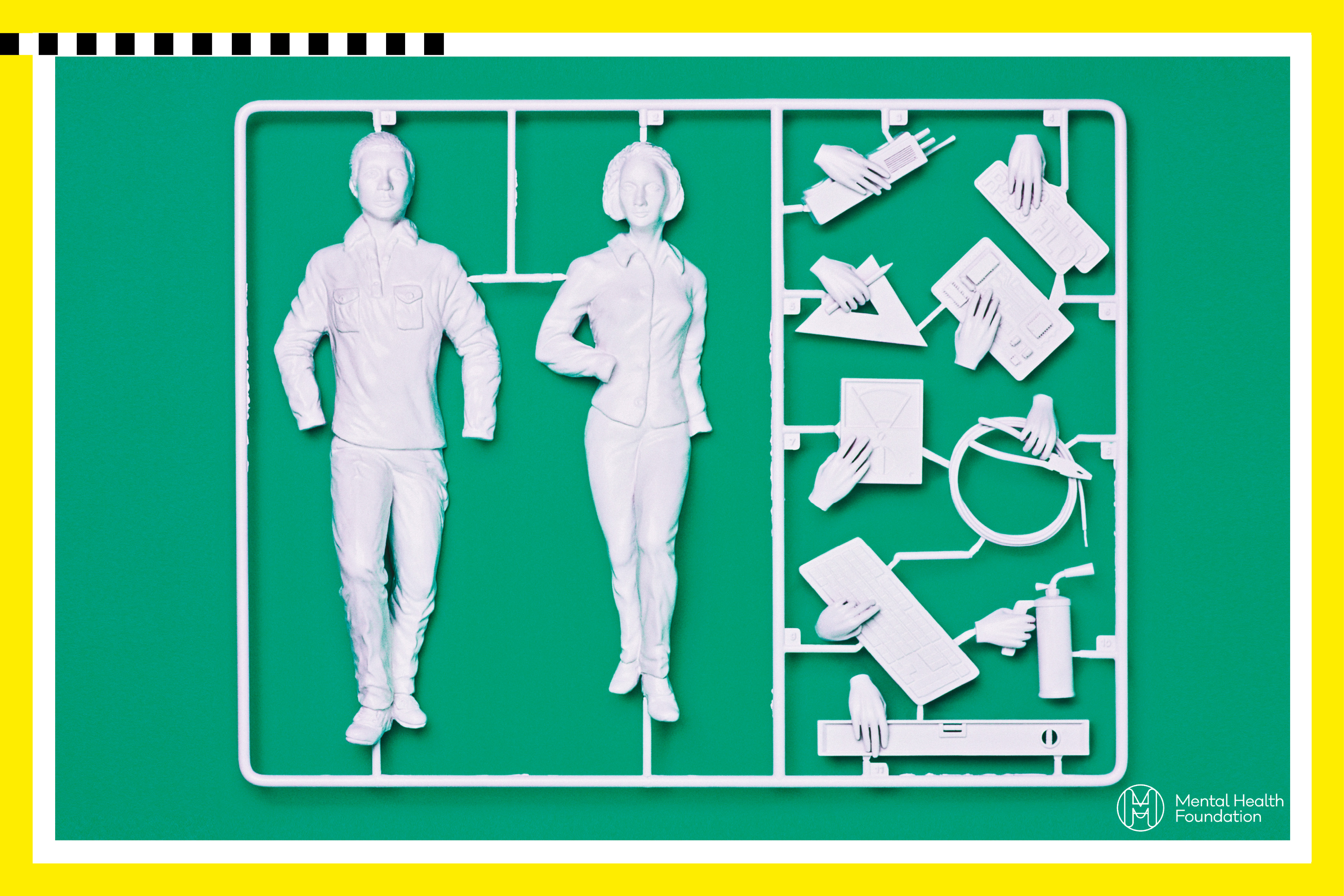#MHAW: What’s holding you back from redesigning your life?

Self improvement; personal growth; lifestyle overhaul; new week, new me… Whatever you call it, we’ve all had a time in our lives where we’ve asked, “Is that it?” Some of us don’t know what we want in life, and that’s totally fine. But for those of us that do, despite knowing what we need to do to make a change in our lives, and even how we might implement these changes, there seems to be something holding us back.
In a nod to Mental Health Awareness Week (10-16 May), hosted by the Mental Health Foundation, BALANCE takes a look at the factors stopping us from achieving what we truly desire and, ultimately, from reaching a place of total happiness and contentment.
Q. How can I overcome my fears?
A. Turn them into a weapon
Change is often scary. Terrifying, even. It’s in our nature to fear change, but fear is not always a negative emotion. As Stacey Millichamp, accredited psychotherapist, explains, “Fear is a natural part of life. It is not always a signal that something is wrong; it is also a sign that courage is needed to challenge ourselves by stepping into the unknown.” Fear is an emotion that you can overcome and even use to your advantage, to help refresh and boost your self-esteem, encouraging you to overcome future barriers.”
Whether you’re in a relationship you feel isn’t quite right, or are thinking of making a career change, the thought of taking the plunge can be overwhelming. The unknown is something we all have to deal with, so how do we force ourselves to overcome the deep fear of failure that comes with decisions such as these when our happiness and life fulfilment truly depend on them?
In her bestselling self-help book Feel the Fear and Do it Anyway, American psychologist Susan Jeffers PhD, suggests “the only way to get rid of the fear of doing something is to go out and do it.” This may seem like a difficult piece of advice to heed, but it’s just like training a muscle at the gym; the more often you exercise your courage by facing your fears, the easier it becomes, al
lowing you to affect positive change. Jeffers goes on to advise “every time you encounter something that forces you to ‘handle it’, your self-esteem is raised. You learn to trust you will survive, no matter what happens. In this way, your fears are diminished immeasurably.”
More often than not, our fear of failure stems from a place of low self-esteem and self-doubt. According to Millichamp, one way to overcome your fears is to befriend them. “Learning to soothe your fear, whilst also taking ourselves by the hand and breaking new ground, is essential if we are to live a fulfilling life.” By removing the power from your fears, you are able to conquer them one at a time, making steady change to your life. Harnessing the power of fear and moulding it into something positive to continuously encourage growth and improvement, you begin to recognise fear as a tool that can be used to push you through negative thoughts.
Some of us have moved past the point of being able to take control of our fear, and have fallen victim to our own mental barriers that can also cause us to grind to a complete halt and even regress. So what happens next?
Q. How do I stop self-sabotage?
A. Swallow the frog
Low self-esteem, self-doubt and fear of failure can easily spiral, leading us down a winding road of procrastination that ultimately ends in a nasty and sometimes unrecognisable place. Self-sabotage is a behavioural trait developed over time, where we unconsciously avoid making challenging decisions and actioning change, even though we are aware of the long-term benefits.
Dr Elena Touroni, consultant psychologist, believes you can “recognise self-sabotage by noticing a gap between conscious intentions and their behaviour.” In order to combat this, you must first look at making positive changes to your behaviour.
Procrastination can be stopped in its tracks by tackling the task head on. By taking that initial step, you allow positive decision making to become a habit, enabling you to carry on in a positive direction.
“How to eat a frog?”, Carol Ann Rice, a leading UK Life Coach, asks. “Quickly and with one swallow. Don’t drag out painful tasks. Work in bursts doing the tough stuff quickly and efficiently.” The reason we put things off is because they present us with a psychological challenge and barrier we must overcome. Tackling the largest, most intimidating area of a problem is the quickest way to give yourself a huge feeling of accomplishment, boosting confidence and giving you a kick start into doing what needs to be done to accomplish what you desire.
Q. How can I ensure continuous positive change?
A. Chip away at the old routine
We know we don’t like change, and this is why we form habits. However, it’s our bad habits that hold us back and allow us to create excuses for not making progress. Old habits are hard to break, and good habits are even harder to form. Dr Touroni suggests to conquer this, visualise what is important so it becomes easier to break bad habits that hold us back. “Once we do this, we need to work in a focused and disciplined way towards achieving the new habit or behaviour, reminding ourselves of why we are working towards this when there are bumps along the way.”
Once you chip away at restrictive habits, continue to form positive ones that will drive you towards your end goal. “It takes 90 days to create a new neural pathway in the brain, so it is about doing something small and different and being patient with the progress,” says Rice. Ninety days sounds like a lifetime, but once you have found the power to resist the urge to revert to your old ways you have overridden psychological challenges, refreshing behavioural habits and making the hard work worth it.
One way to ensure you keep on track is to make sure you are held accountable for your actions and progress. You don’t have to announce your grand plans to the world, but talk to someone you trust, tell them your long-term goals and how you intend to achieve them. Check in regularly to mull over what you’ve achieved and get into the habit of doing this regularly, setting yourself landmarks to reach by a specific time.
Making dramatic changes to our lives can be incredibly challenging, but it is possible with the right knowledge and tools. By focussing on what it is you truly want, it can become easier to push yourself through your mental barriers in order to achieve what you desire. Challenging yourself and finding that you can fulfil what you set out to achieve will only boost your confidence, setting you along the right path to find happiness and success.









